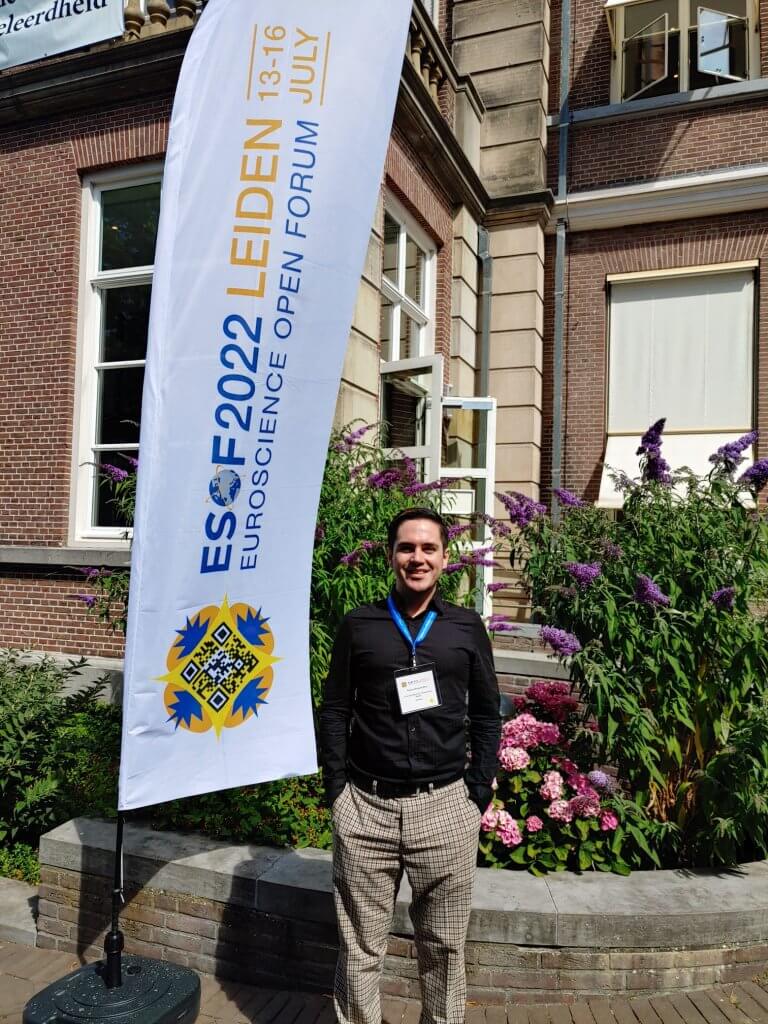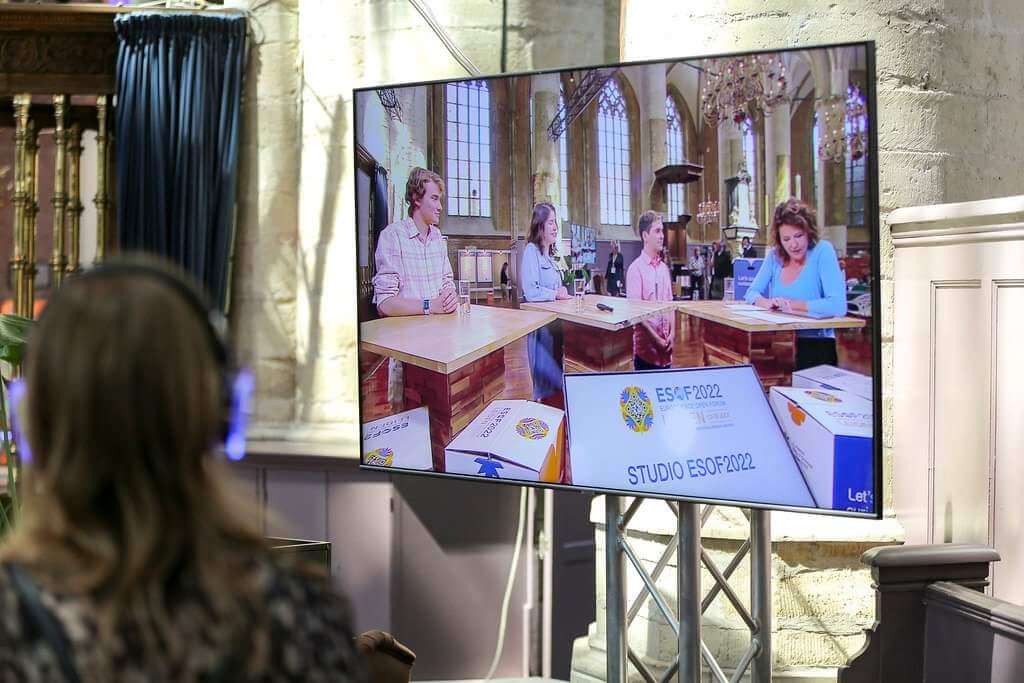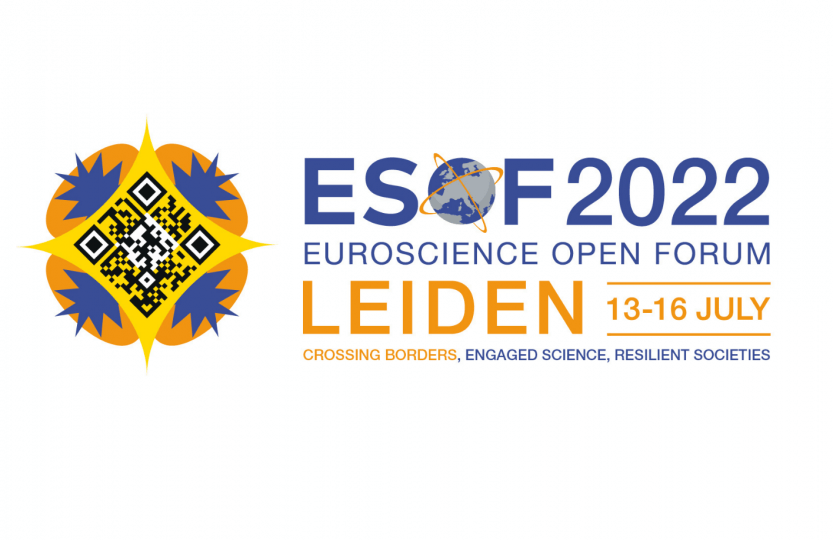This year, the EuroScience Open Forum (ESOF) was held in Leiden, Netherlands. This edition of the ESOF is not only special because it happens in a more or less post-pandemic scenario, but also because it marks the EuroScience 25th anniversary and the 10th Edition of the ESOF. The EuroScience is a non-profit organization of researchers in Europe that founded the ESOF in 2004. Since then, this conference has brought a platform for scientists of many different areas to debate and engage the academy with industry and society allowing multidisciplinary dialogue, training, and bringing innovation. The theme of this year was “Crossing Borders, Engaged Science, Resilient Societies”. Since its creation, ESOF has become the largest scientific conference in Europe, and receives the support of many organizations that sponsor students to take part in it – including the Elite Network of Bavaria (ENB). In every edition, the ENB offers 10 scholarships for students of ENB’s programmes to be able to participate in the ESOF. Happily, this year I was one of the fortunate students who were granted this opportunity.
My conference experience
As in 2020, ESOF was held as a hybrid event. As a grantee, I was able to take part on-site, and I have to say that it was an amazing experience. During the days of the conference, the entire city revolves around it – the universities, the museums, the streets. There are attractions everywhere! All the events were well thought out and aligned to current world challenges. The structure with lectures, discussions and workshops went beyond and helped greatly to equip me me with more than the usual knowledge. They also led me to look inside of myself as an individual and examine where I stand right now on my career, my mental health, and future prospects. It was very motivational and challenging!

On the first day, I was able to attend two workshops. One was about finding your career path outside academia and the other was about mental health in academia. I have always considered academia as my career goal. However, lately, especially after the pandemic and all the pressure that I have felt since then, I have started to consider exploring other paths. Furthermore, as I still am in academia as a master student, I thought that the second workshop on mental health could be helpful to me at this moment. Both workshops were valuable on a professional and on a personal level. The main take-aways were that industry have different goals than academia; LinkedIn is a must to connect with people I don’t know; be prepared for interviews; mental health and career go hand in hand; and the current system we live in should be restructured and changed to aid people’s needs concerning mental health and productivity. Later on, I attended the beautiful opening ceremony and the reception.
As a grantee, I had the chance to attend the grantee meeting on the second day of the conference, where the grantees met with president of the EuroScience Association and some of the representatives of the sponsor institutions. There was a very interesting panel where some of the grantees talked about their experiences as PhDs, which was really enlightening and fascinating to learn all the different backgrounds and stories. Besides that, my favourite session of the day was the talk “Biodiversity as an opportunity”, where they discussed about soil biodiversity, ecosystem restoration, human’s footprint, the financial sector and the Dutch Youth Climate Agenda. I particularly enjoyed this talk because one of the speakers talked about the efforts of the restoration of the Atlantic Forest in Brazil, as a Brazilian myself.
The main highlight for me on the third day was the “Keynote Sustainable Environment” at the Main stage. This talk covered many different aspects of the current world crisis: sustainability, the Anthropocene, planetary boundaries, policies, food crisis, ecosystem services and the coexistent frictions between sectors. Besides that, I could explore the on-site attractions outside and inside Pieterskerk. I saw curious innovation developed with nanotechnology, experienced virtual reality in the context of the importance of the pollinators for the world, and I was also able to join networking events. In the evening, I attended the Delegate Party at the Botanical Garden and had the opportunity to see the blooming of the Titan arum, a plant that has its full bloom only once a decade.

On the last day, I joined a training about Sustainable careers at the EU Pavilion. This was really interesting and gave me a boost of motivation regarding my future. The coach talked about how our careers and lives are not always linear and cannot be planned in every detail. We should focus on the positive, the possibilities, and our strengths. Furthermore, she also advised us to think about our transferable skills, which are generic skills that can be applied to other sectors, and to dare to dream and act to achieve our goals. Afterwards, I was invited to take part in the lunch talk of the day with two other colleagues, GCEs Alexis Case and Zackary Zeller, to talk about our experiences during the event.
Taking part in the ESOF was a major experience to me in many aspects. It helped me learn and reflect even more about the world and how I see myself in it, my role, my contribution, and my goals. I recommend everyone to participate in the next edition of the ESOF, which will take place in Katowice, Poland, in 2024. Remember that, as students of an ENB programme, you can apply for a grant to attend the conference in person! Don’t miss your chance when the applications start and good luck!
You can visit the ESOF website clicking here.
I am positive minded person who believes that all of us can make a difference in this world. I come from Brazil to study Global Change Ecology at Uni Bayreuth in Germany and I am interested in conservation, geoprocessing, remote sensing and research. I have a bachelor in Sanitation and Environmental Engineering and I am an artist in my free time.










The article is very informative and interesting